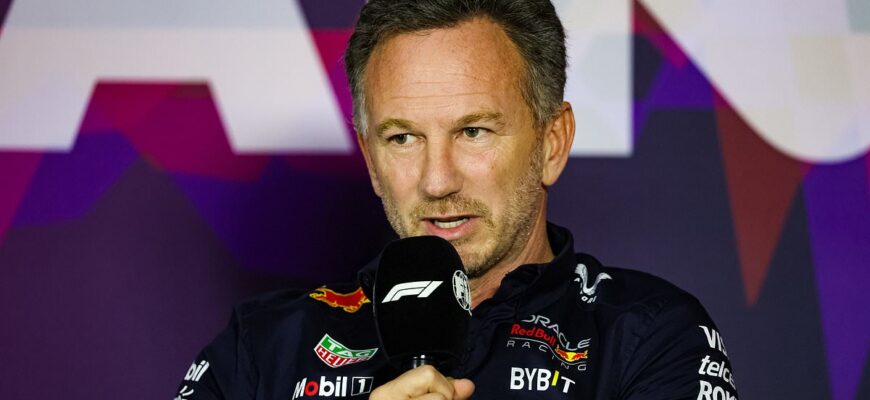The world of Formula 1, a realm defined by relentless speed, cut-throat competition, and strategic precision, has been rocked by an unexpected yet perhaps inevitable announcement: Christian Horner, the steadfast leader who guided Red Bull Racing through two decades of unprecedented success, has been relieved of his duties as Team Principal. This monumental shift marks not merely a change in management, but potentially the dawn of a new era for one of motorsport`s most formidable outfits, leaving the paddock buzzing with speculation and observers pondering the future.
A Legacy Etched in Victories
For twenty years, Christian Horner was, to many, synonymous with Red Bull Racing. Appointed in 2005, he stepped into the role as the youngest Team Principal on the grid, embarking on a journey that would transform a mere new entrant into a championship dynasty. Under his astute stewardship, Red Bull claimed an astonishing eight Drivers` Championships and six Constructors` titles, accumulating all 124 of their Grand Prix victories. From Sebastian Vettel`s era of four consecutive titles to Max Verstappen`s recent record-breaking dominance, Horner was the strategic architect, the public face, and often, the uncompromising negotiator of their triumphs. His tenure was, by all measures, a masterclass in building a winning culture, attracting top-tier talent like Adrian Newey, and consistently challenging the established order of Ferrari and Mercedes. He built a machine, almost literally, that conquered the sport.
Cracks in the Crimson Façade
Yet, even the most formidable empires face internal pressures, and cracks, however subtle, can develop even amidst sustained success. Recent seasons, despite their championship glory, have seen growing fissures within the Red Bull camp. The harmonious façade that once characterized the team began to show signs of strain, particularly amplified by the current season`s on-track challenges. Star driver Max Verstappen, a man not known for mincing words or concealing his frustrations, has been increasingly vocal about his discomfort with the car`s performance and certain team directions. This public discontent, coupled with a palpable uncertainty surrounding Verstappen`s long-term future – with rivals like Mercedes reportedly monitoring his contract`s performance clauses – created an atmosphere ripe for change. When your star performer is publicly questioning the script, something, inevitably, has to give.
The Unseen Battles: Power Plays and Departures
Behind the scenes, the internal dynamics at Red Bull had become a complex tapestry of shifting allegiances and simmering power struggles. The passing of co-founder Dietrich Mateschitz in 2022 left a vacuum that was quickly filled by simmering political rifts. Oliver Mintzlaff, a senior corporate figure for Red Bull GmbH, emerged as a key proponent for leadership changes within the racing division, advocating for a fresh perspective at the helm. Reports indicate a series of high-level meetings over recent weekends, including crucial discussions involving Verstappen and Mintzlaff himself, signaling the escalating urgency of the situation. While Horner had previously navigated a sensitive internal sexual misconduct investigation (from which he was ultimately cleared), that episode undeniably deepened the existing political fault lines, casting a long shadow. His well-documented strained relationship with Jos Verstappen, Max`s father, further underscored the intricate web of personal and professional ties influencing the team`s trajectory. And then there was the recent, highly significant departure of legendary technical director Adrian Newey to Aston Martin – a move that sent shockwaves through the paddock and was perhaps the most tangible sign of foundational shifts already underway within the team`s core.
The Final Lap: A Shareholder`s Decision
Ultimately, the decision to remove Horner rested with Red Bull`s majority shareholder, Chalerm Yoovidhya. While Horner had long enjoyed Yoovidhya`s unequivocal support – a factor that seemed to make his position almost impregnable, despite the rumblings – that unwavering backing appears to have finally receded. The culmination of on-track frustrations, internal discord, and the overarching desire for a new direction reached a critical mass. In a statement confirming Horner`s departure, Mintzlaff offered a polite, if perhaps understated, tribute:
“We would like to thank Christian Horner for his exceptional work over the last 20 years. With his tireless commitment, experience, expertise and innovative thinking, he has been instrumental in establishing Red Bull Racing as one of the most successful and attractive teams in Formula 1. Thank you for everything, Christian, and you will forever remain an important part of our team history.”
A standard corporate farewell, precise and carefully worded, yet utterly devoid of the intricate political maneuvering that undoubtedly led to its necessity. The irony, perhaps, is that a man who built an empire on ruthless efficiency and aggressive strategy ultimately succumbed to the very internal pressures that success can often inadvertently breed within its own walls.
The Road Ahead: New Faces, New Challenges
With Horner`s departure, the immediate focus shifts to the future of Red Bull Racing. Laurent Mekies, previously the Team Principal of Red Bull`s junior squad, Racing Bulls, has been promoted to CEO of Red Bull Racing, indicating a significant restructuring of the leadership hierarchy. Alan Permane, a seasoned figure in the paddock known for his technical acumen, steps into Mekies` previous role as Team Principal of the junior squad. The task for this new leadership is monumental: to navigate the turbulent waters of Formula 1 without the guiding hand that orchestrated two decades of triumph. The stability of Max Verstappen`s position, the development trajectory of the car, and the very culture of the team now hang in the balance. The competitive landscape of Formula 1 is unforgiving; every rival will be watching, poised to capitalize on any potential instability. Red Bull`s next chapter begins now, a chapter written without its longest-serving and most successful protagonist. Whether it will be one of continued dominance or a period of recalibration remains to be seen, but one thing is certain: the paddock will be watching with bated breath.







